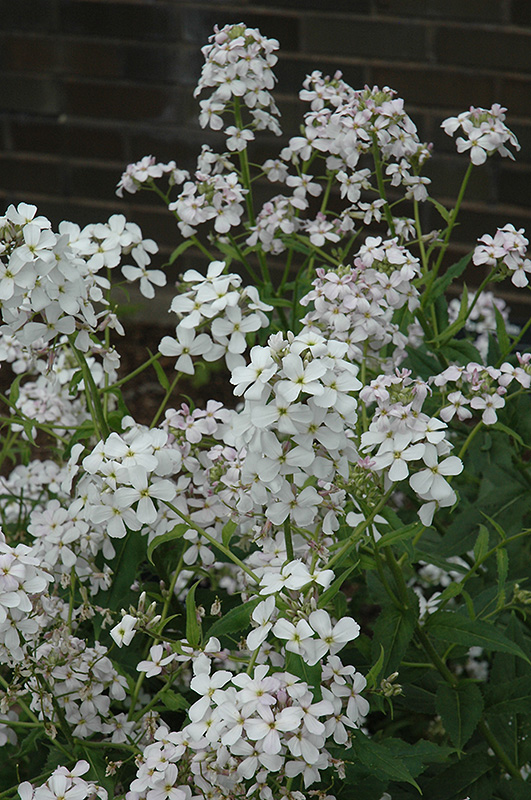Plant Finder
Plant Height: 24 inches
Flower Height: 3 feet
Spacing: 20 inches
Sunlight:
![]()
![]()
Hardiness Zone: 1
Description:
Attractive, self-seeding biennial with flowers in white and purple shades; great for naturalized areas and to attract butterflies; lovely evening fragrance; an extremely easy-to-grow plant in the garden
Ornamental Features
Dame's Rocket features showy racemes of fragrant purple flowers at the ends of the stems from early to late spring. The flowers are excellent for cutting. Its narrow leaves remain dark green in color throughout the season.
Landscape Attributes
Dame's Rocket is an herbaceous perennial with an upright spreading habit of growth. Its medium texture blends into the garden, but can always be balanced by a couple of finer or coarser plants for an effective composition.
This plant will require occasional maintenance and upkeep, and should be cut back in late fall in preparation for winter. It is a good choice for attracting butterflies to your yard. Gardeners should be aware of the following characteristic(s) that may warrant special consideration;
- Self-Seeding
Dame's Rocket is recommended for the following landscape applications;
- Mass Planting
- General Garden Use
- Naturalizing And Woodland Gardens
Planting & Growing
Dame's Rocket will grow to be about 24 inches tall at maturity extending to 3 feet tall with the flowers, with a spread of 24 inches. When grown in masses or used as a bedding plant, individual plants should be spaced approximately 20 inches apart. Its foliage tends to remain dense right to the ground, not requiring facer plants in front. It grows at a medium rate, and tends to be biennial, meaning that it puts on vegetative growth the first year, flowers the second, and then dies. However, this species tends to self-seed and will thereby endure for years in the garden if allowed. As an herbaceous perennial, this plant will usually die back to the crown each winter, and will regrow from the base each spring. Be careful not to disturb the crown in late winter when it may not be readily seen!
This plant does best in full sun to partial shade. It does best in average to evenly moist conditions, but will not tolerate standing water. It is not particular as to soil type or pH. It is somewhat tolerant of urban pollution. This species is not originally from North America.
